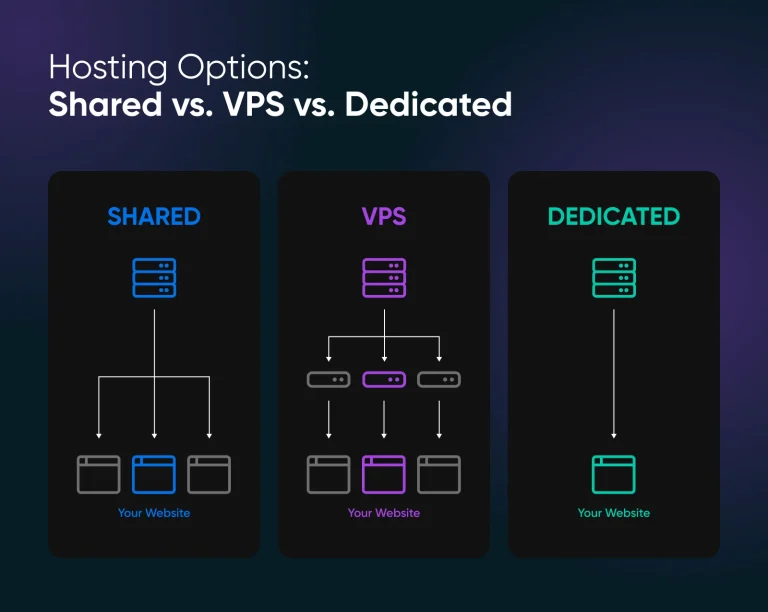How to Host Private Game Servers (VPS vs Dedicated)
So, you’re thinking about hosting your own private game server — great idea. Whether you’re launching a modded Minecraft world for your friends or starting a full-scale MMO community, choosing the right hosting setup is key. In this guide, we’ll break down how to host a private game server, the difference between VPS and dedicated servers, and which option makes the most sense for your goals.
Why Self-Host a Game Server?
Hosting your own game server gives you full control over the rules, performance, uptime, and community. No more lag spikes from public servers, no greedy monetization from the official devs, and no restrictions on mods or plugins. You call the shots.
But hosting isn’t as simple as clicking a “start” button. You need to understand networking, server requirements, and how to keep everything secure and stable — especially if players outside your LAN will connect.
Understanding Server Types
There are two main types of hosting for private game servers:
- VPS (Virtual Private Server)
- Dedicated Server
Let’s explore both so you can choose wisely.
What is a VPS?
A Virtual Private Server (VPS) is a virtual machine hosted on a larger physical server. You get dedicated resources (CPU, RAM, storage) and root access, just like a mini-dedicated server — but you share the physical hardware with others.
Popular VPS providers include:
- DigitalOcean
- Vultr
- Linode
- Contabo
VPS servers are cheap, flexible, and good for small to medium game servers. Think 1–20 players depending on the game and your specs.
What is a Dedicated Server?
A dedicated server is an entire machine reserved for your use only. No sharing. No virtual machines. Just raw power.
This is ideal for resource-heavy games, large communities, or when you want absolute control over performance and stability.
Top dedicated hosting providers:
- OVH
- Hetzner
- SoYouStart
- ReliableSite
They usually offer better network throughput, faster SSDs, and more consistent CPU performance — perfect for mod-heavy or competitive multiplayer games.
VPS vs Dedicated: Which is Better?
| Feature | VPS | Dedicated |
|---|---|---|
| Cost | Low ($5–30/mo) | Higher ($60–150/mo) |
| Performance | Good for 5–20 players | Best for 30+ players or modded games |
| Scalability | Easy to scale up | Needs hardware upgrade |
| Control | Full root access | Full root access |
Common Setup Steps
No matter which hosting you choose, here’s a high-level checklist to follow:
- Choose your server type (Linux is recommended for most games)
- Install required packages (Java, Mono, .NET, Docker, etc.)
- Open the necessary ports in your firewall
- Upload or install the game server files
- Run the server in a screen session or systemd service
- Secure your server (fail2ban, firewall, backups)
- Monitor resource usage regularly
For popular games like Minecraft, Valheim, ARK, and CS:GO, you can find official or community setup guides. If you’re using mods, make sure you install the correct dependencies (Forge, BepInEx, SourceMod, etc.).
Recommended Specs Per Game Type
Every game has different server demands. Here are some rough starting points:
- Minecraft: 2 CPU cores, 4GB RAM for Vanilla; 6GB+ for modpacks
- Rust: 4 cores, 8–16GB RAM minimum
- Valheim: 2 cores, 2GB RAM for small worlds
- CS:GO: 2–4 cores, 4GB RAM
If you expect more than 10–15 concurrent players, go dedicated or a high-tier VPS.
Don’t Forget Backups & Security
Game servers can crash, get attacked, or become corrupted. Always have an automated backup system (cron job, rsync, or a control panel feature). Use firewalls to block unnecessary ports, disable root SSH login, and keep your OS updated.
Tools like UFW (Ubuntu Firewall), fail2ban, and even Cloudflare (for DDoS protection) can be lifesavers.
Hosting Control Panels
If you’re not comfortable with command-line setup, consider using a panel:
- Pterodactyl (free and open source)
- AMP by CubeCoders (paid)
- Multicraft (popular for Minecraft)
These tools help you manage game instances, user permissions, scheduled restarts, and backups — all through a web interface.
Conclusion
Hosting your own game server is rewarding, fun, and even profitable if done right. If you’re just starting out or hosting for a small group of friends, a VPS is a great first step. If you’re going big, need more power, or want to build a public community, dedicated hosting is your best bet.
Whichever you choose, make sure you understand the game’s requirements, keep your server secure, and always back things up. A well-run private server can be a great side project — or even a business.
